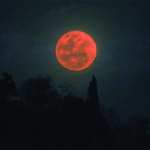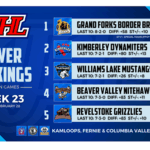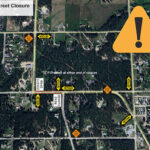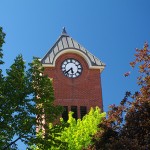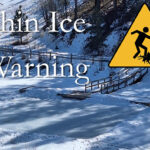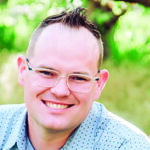Home »

Proulx’s extraordinary gift evident
Book Review
By Derryll White
Proulx, Annie (2002).’That Old Ace In the Hole’
 I have to confess up front going into this novel that I am a huge Annie Proulx fan. I think she can write the mist off mountains and break any day that I am reading her into golden sunlight with eagles soaring overhead. Her short stories are among the best available. Her novel ‘The Shipping News’ was a tour de force and her autobiographical ‘Bird Cloud’ is probably the most moving biography it has been my privilege to read thus far.
I have to confess up front going into this novel that I am a huge Annie Proulx fan. I think she can write the mist off mountains and break any day that I am reading her into golden sunlight with eagles soaring overhead. Her short stories are among the best available. Her novel ‘The Shipping News’ was a tour de force and her autobiographical ‘Bird Cloud’ is probably the most moving biography it has been my privilege to read thus far.
From the very first sentence, a long and intricate one, Proulx reminds me that I am in the presence of an extraordinary writer, a craftsperson who takes her art form very seriously. She brings me to each page wanting more, the next page the next chapter. She populates her landscape, here as in all her works, with care and attention. She elicits emotion and vivid mental images that places her reader there, in the Texas Panhandle, shoulder to shoulder with her very believable characters. In fact, Annie Proulx is one of the best writers of ‘place’ it has been my pleasure to read – whether Newfoundland, Wyoming or Texas. Nor is she ever far from her naturalist, ecological inclination. Again, Annie Proulx her offers clear, precise views of how water and sun play with landscape, offering home to a myriad of plants, animals and birds which she captures with loving attention.
The novel reads as the most marvelous anthropological text examining a special culture foreign to almost everyone. Proulx gets very close to the people of the Texas Panhandle. She recreates the lifestyle, the dialect, the characters in a very believable way. The book is also a journey, from unknowing to knowing, from callow youth to maturity. She investigates memory – the Panhandle that was and the Panhandle that is. She asks what does that mean to the Panhandle that will be?
As with the whole body of her work, Proulx pays attention here to the words she uses, the dialogue. By doing that she takes the reader with her on a wild, wondrous journey into an unknown land. Yes, yes – I love this book.
Excerpts from the novel
PLACE – Gradually the ancient thrill of moving against the horizon into the great yellow distance heated him, forever fenced and cut with roads the overwhelming presence of grassland persisted, though nothing of the original prairie remained. It was ALL flat expanse and wide sky. Two coyotes looking for afterbirth trotted through a pasture to the east, moving through fluid grass, the sun backlighting their fur in such a way that they appeared to have silver linings. Irrigated circles of winter wheat, dotted with stocker calves, grew on land as level as a runway.
CAPITALISM – “We don’t think of hogs as ‘animals,’ Bob, not in the same way as cats and dogs and deer and squirrels. We say ‘pork units.’ What they are, Bob, is ‘pork units’ – a crop, like corn or beans.” There followed a long lecture on free enterprise and the American Way, the importance of economic opportunity and the value of entrepreneurship to the general good and the well-being of America.
CHANGE – It’s like Brother Mesquite says: ‘Things are as the windmill to the wind, constantly changin’, makin’ a response.’ But what things change INTO is somethin’ else.
THE PLAINS – He knew he was on prairie, what had once been part of the enormous North American grassland extending from Canada to Mexico, showing its thousand faces to successions of travelers who described it in contradictory ways: under gritty spring wind the grass blew sidewise, figured with bluets and anemones, pussytoes and Johnny-jump-ups, alive with birds and antelope; in midsummer, away from the overgrazed trail margins, they traveled through groin-high grass rolling in waves; those on the trail in late summer saw dry, useless desert, studded with horse-crippling cactus. Few, except working cowboys, ventured onto the plains in winter when stinging northers swept snow across it. Where once the howling of wolves was heard, now sounded the howl of tires.
DEATH – “Son, Tater and me is more toward death. We’re in the years where we meet our fate instead a dodgin and twistin in the long game that nobody can win. We sorted it out…
ALTERNATIVE – The sides and back of her head were shaved, the top hair left long and dyed prison orange and federal yellow. Her mouth was coated with alternating vertical bands of purple and blue lipstick and a small ring hung from her lower lip. Her ears glinted with a dozen niobium rings. She wore a pair of men’s white corduroy trousers. The backs of her hands were inked with skulls. Each finger showed several rings and chipped green nail polish, and her elbows were scaly gray. She wore a man’s sleeveless purple satin jacket,the back embroidered Insanity Posse. When she turned around Bob saw a biscuit-size hole in the rear of her pants disclosing the fat swell of a peach buttock.
AMERICA – Ponola changed all that and made the auxiliary a quasi-military organization with uniforms and black leather belts and boots, rigid hats in Smoky the Bear style, shirts with neckties and the like. The cookie-baking wives were forced out and in their place came Ponola’s friends, muscular Baptist-Republican-antiabortion amazons who patrolled the street outside Pine Cone’s only bar, looking to break up fights and twist cowboy’s arms, arts in which they excelled.
WEATHER – The day’s heat pounded like blood pulsing through veins, struck down from sky tinted like a windshield, darker at the top, and embedded in it the malevolent grilling sun.
QUILTING – On the main panel the fallen sheep man, Abel, wore jeans and a plaid shirt with pearl buttons. His dented cowboy hat lay on the stained ground near several broken teeth. Nearby a Border collie snarled at Cain.
CHILDREN – “You know, even with all these ballet classes and music lessons kids nowadays get to take, I think parents loved their children more in the old days. We was more involved in the work of the family. A boy or girl knew they had value.”
KKK – “In them days the Klan was not a bunch of crazy supremacists but decent men who was strong Christians, very patriotic and chivalrous. They more or less watched over communities and protected Christian morals. It’s true they didn’t care for Nigroes, but no more than they didn’t care for Catholics and Jews. And that wasn’t the point, anyway. They wanted to see people behave decent. The women a the Ku Klux Klan was strong on community morals. And they had to be.”
RIGHTS – “You will find, Bob, as you mature, that lip service to the rights of the property owner is just that – lip service. What rules the world is utility – general usefulness. What serves the greater good will prevail… Bob suddenly remembered Bromo reading a paragraph from his ongoing essay ‘This Land Is NOT Your Land,’ describing democracy as the duped handmaiden of utility.
TEXAS CHOICE – “Those abortion parlors, they take the poor little babies and” – she lowered her voice conspiratorially – “cut them up! They sell the body parts to godless scientists. Evolutionists.”
“I heard something even more terrible,”
“What could be?” Needles paused, all hands still.
“I heard that in Washington, D.C., the abortionist doctors cut up the babies, cut off the identifiable parts and sell the rest to Chinese restaurants.”
WATER – “That’s squitter water. It’ll make you want to die, make you think your guts is being pulled out of your asshole with your mom’s crochet hook, but you won’t die and most gets better…”
RELIGION – Bob Dollar, who had been vaccinated against religion by Bromo Redpoll’s atheistic cynicism and Uncle Tam’s neutrality, thought to himself that maybe the Lord had a mean streak, or maybe what happened to people was all chance and circumstance. “It beats me,” Bromo had said, “how anybody can support a religion that takes a scene of capital punishment for its central image.”
WEATHER – No wonder, he thought, that panhandle people were a godly lot, for they lived in a sudden, violent atmospheres. Weather kept them humble.
CEMETERY – “The ghosts come up out a this place ever night like a flock a bats,” he said.
 Derryll White once wrote books but now chooses to read and write about them. When not reading he writes history for the web at www.basininstitute.org.
Derryll White once wrote books but now chooses to read and write about them. When not reading he writes history for the web at www.basininstitute.org.
